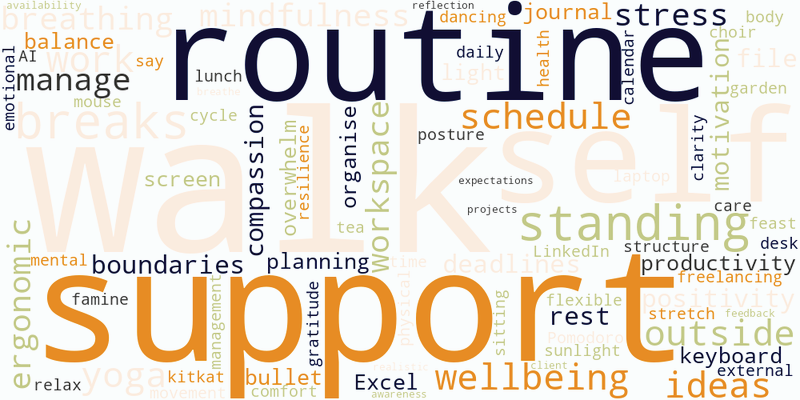Wellbeing: what works for you?
Resources and tips to help you take care of your professional wellbeing.
Self-care is an essential ingredient for sustainable professional success. In today’s demanding world of work, self-care isn’t an indulgence, it’s a necessity. Taking care of both your physical and mental health enables you to deliver high-quality work consistently and to tight deadlines, helps to prevent burnout and ensures you retain a passion for your work.
Of course there are no silver bullets, but on this page you’ll find concrete tips on ways to improve wellbeing and work on self-care.
What works for me?
When it comes to wellbeing and self-care, there is no one size fits all approach. Different strategies work for different people, so we asked members to tell us what works for them. Below, three members share their tips.
Other members shared their self-care and wellbeing tips in text form, and the word cloud below summarises their responses:

As you can see, the most common responses revolved around "routine", "support" and "walks", with many other useful keywords and ideas tucked in between. Many of the ideas that members alluded to also echo Lydia Marquadt's excellent article from April 2025 on 'Resource and resilience'.
Further reading
If you are looking for further reading on wellbeing, you can also download a free excerpt on the topic from JC Penet’s textbook, Working as a Professional Translator. The excerpt explores how engaging in self-care practices can help mitigate the effects of work-related stressors and promote a sustainable career.
To download your copy, follow this link, and scroll down to the Support materials tab.




